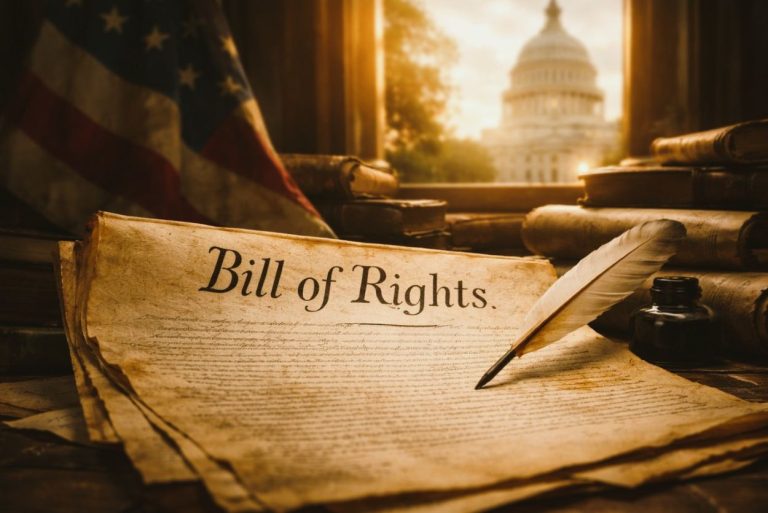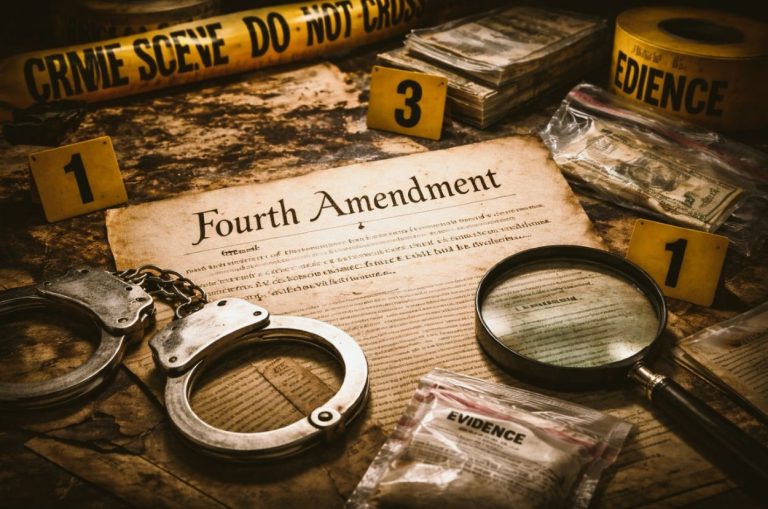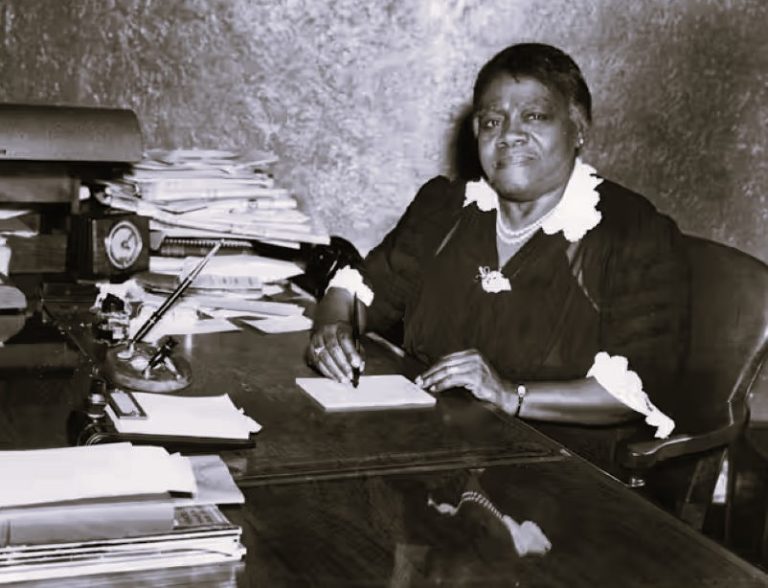
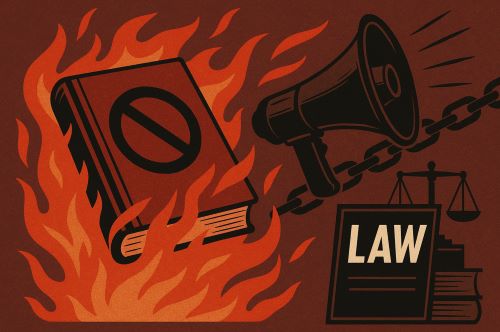
Defending freedom of information will not be easy. It will require not only legal challenges and public protest, but a recommitment to the democratic ideals that once made libraries sacred spaces.

By Matthew A. McIntosh
Public Historian
Brewminate
Introduction: The Library as Battlefield
Public libraries and classrooms once symbolized the ideal of free inquiry in American democracy. A nation that prided itself on open discourse and civic literacy could point to its schools and libraries as guardians of pluralism. Yet these spaces are no longer merely civic institutions; they have become frontlines in an intensifying cultural and legal war.
What was once a sporadic debate about “appropriate” material has hardened into a coordinated effort to criminalize entire categories of knowledge. New laws do not merely challenge what should be on the shelves. They threaten the personal freedom of librarians, educators, and even students. In this climate, the mere act of making a book available can carry personal and professional risk.
The current wave of legislation reveals not only a deep anxiety over cultural change, but also a profound reshaping of the legal definition of free speech. At stake is more than just access to books. What is under assault is the very concept of intellectual autonomy in public life.
From Discomfort to Danger: A Shifting Legal Landscape
In past decades, challenges to books in schools and libraries often came in the form of parental complaints or local board decisions. Titles such as The Bluest Eye, I Know Why the Caged Bird Sings, or The Handmaid’s Tale were debated and, occasionally, removed, only to return later amid fresh public discourse. The battles were contentious, but they operated within the framework of administrative review.
Today’s approach is more systemic and punitive. Across dozens of U.S. states, legislators have introduced or passed bills that criminalize librarians for failing to remove “sexually explicit” or “divisive” materials, often without clear legal definitions. In Missouri, a 2022 law made it a misdemeanor for school employees to provide “sexually explicit” content, prompting the removal of over 300 titles from school libraries, including illustrated versions of Shakespeare and Maus, Art Spiegelman’s Pulitzer Prize–winning graphic novel about the Holocaust.
This trend is not isolated. Florida’s HB 1467 requires that all books in school libraries be reviewed by a certified media specialist and that materials be “age-appropriate,” again without defining the term in any consistent legal sense. Educators in the state now risk felony charges if they make certain titles available before those reviews are complete.
Such legislation shifts the terrain from educational discretion to legal peril. The result is a chilling effect across school districts, where risk-aversion leads to preemptive censorship. Teachers are removing classroom libraries entirely. Some districts are requiring books to be locked away until approved. The fear is not just reputational damage but arrest.
Who Defines “Appropriate”? The Politics of Purity
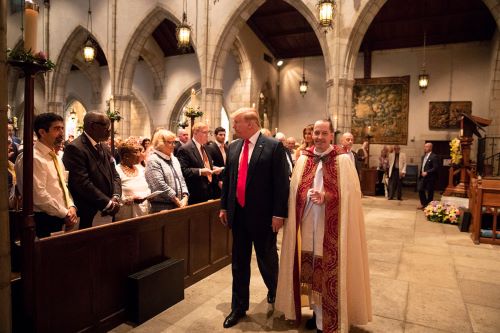
The resurgence of book bans is often framed as a parental rights issue. Groups like Moms for Liberty and other activist coalitions argue that sexually explicit or racially “divisive” material undermines family values and American identity. Their campaigns are fueled by a media ecosystem that amplifies moral outrage while collapsing complex literary content into isolated, decontextualized passages.
Yet the concern is not merely the content of these books. It is who is allowed to tell certain stories and which histories are considered legitimate. The bulk of the titles challenged in recent years center on Black, LGBTQ+, and immigrant experiences. In many cases, the books in question are not graphic or salacious but simply explore the complexities of identity, oppression, and resistance.
Efforts to remove such material under the guise of neutrality or decency often mask a deeper political agenda: the restoration of a narrow, idealized version of American identity. In practice, this involves elevating certain voices while erasing others. When the definition of “appropriate” is left to the most aggrieved or powerful, pluralism suffers.
Educators and Librarians in the Crosshairs
The people most directly affected by this legislation are not the authors of the challenged books. They are the professionals tasked with curating knowledge and fostering civic growth: school librarians, teachers, and administrators.
In Llano County, Texas, librarians faced lawsuits and online threats after refusing to remove books such as Caste by Isabel Wilkerson and They Called Themselves the K.K.K. by Susan Campbell Bartoletti. In response, county officials simply closed the library’s advisory board and removed multiple staff members. In Georgia, one teacher was investigated for recommending My Shadow is Purple, a picture book that encourages gender expression.
These stories are not aberrations. They are signals. They warn of a shift in which educators are no longer protected by institutional norms but exposed to the whims of political fervor. Legal intimidation becomes a tool of ideological enforcement. And with each passing law, the job of the public educator becomes less about pedagogy and more about self-defense.
Free Speech or Government Speech? A Legal Grey Zone
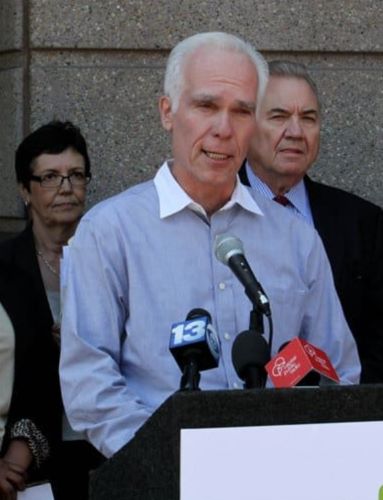
Much of the legal confusion surrounding these laws hinges on a tension that runs deep in First Amendment jurisprudence. Public school teachers and librarians are government employees. The courts have long debated whether their speech is private expression or “government speech,” which is subject to more control.
In Garcetti v. Ceballos (2006), the Supreme Court ruled that public employees speaking “pursuant to official duties” are not shielded by the First Amendment. This precedent, while not aimed at educators, has emboldened state governments to argue that restricting book content in public institutions is simply an exercise of their right to direct government speech.
The implications are profound. If libraries are viewed not as public forums but as arms of the state, then their neutrality and independence may be deemed optional. What remains of intellectual freedom in such a framework becomes fragile and conditional.
The Future of the First Amendment in Schools
If the First Amendment is to remain a living force in American education, it must be interpreted not merely as a protection for individuals, but as a principle embedded in the structure of public institutions. When teachers and librarians are threatened for including legitimate scholarship or diverse literature, the right to free expression becomes theoretical.
Litigation is mounting. Civil rights groups are challenging many of these laws on constitutional grounds, citing overbreadth, vagueness, and viewpoint discrimination. In some cases, courts have granted injunctions or struck down the most egregious provisions. Yet progress is uneven and often temporary.
Public resistance also grows. Students are organizing read-ins. Parents are forming counter-coalitions. Librarians are testifying before legislatures, often at great personal cost. The culture war is real, but it is not one-sided. It is a contest of visions for the American future, one narrow and controlled, the other pluralistic and open.
Conclusion: What Kind of Democracy?
What books are available in a library says something about what stories a society values. What stories are banned says even more.
At its core, the wave of speech-criminalization laws signals a broader anxiety about change. Race, gender, sexuality, and history are not merely topics. They are flashpoints. And in this moment, those flashpoints are being legislated into silence. Defending freedom of information will not be easy. It will require not only legal challenges and public protest, but a recommitment to the democratic ideals that once made libraries sacred spaces. The question is not just whether books will be banned. It is whether we are willing to become a society where banning them becomes normal.
Originally published by Brewminate, 07.18.2025, under the terms of a Creative Commons Attribution-NonCommercial-NoDerivatives 4.0 International license.
